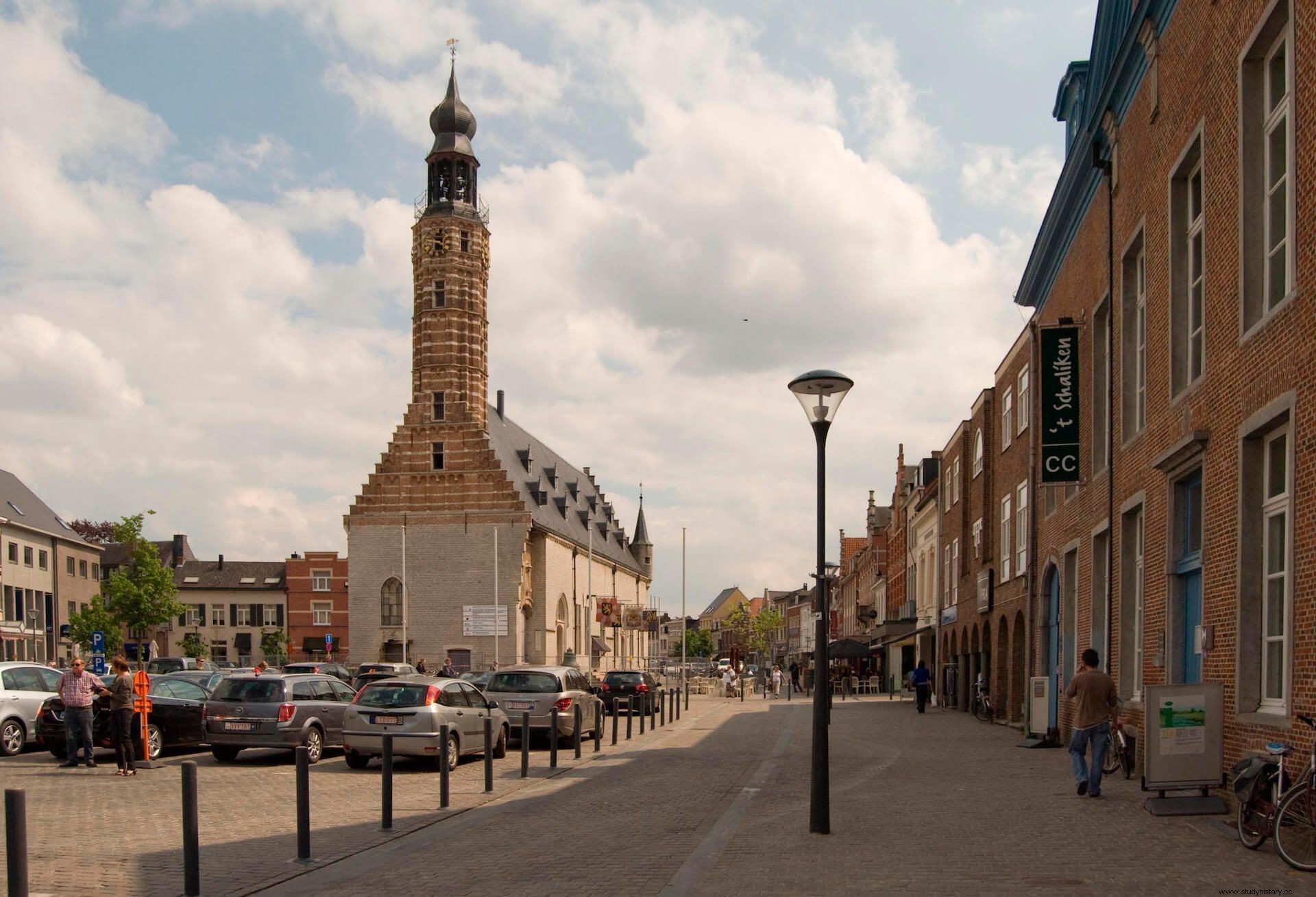
Daniel Steuckers, mayor and director of the small Museum of History of the Belgian town of Osterloo , in the province of Flemish Brabant , discovered last summer a document in the archives of the City Council that has revolutionized the life of this town of two thousand five hundred inhabitants dedicated to cattle farming and cheese making. The sheet in question is entitled Den Schat der Priuilegen vande Stadt Oosterloo opgedraghen aen den Koningh (Treasure of the Privileges of the town of Osterloo dedicated to the King) and was printed in 1598 in neighboring Mechelen by the widow and children of Herman van Borculo.
According to that text, in 1587, Philip II , at the request of the Governor of the Netherlands, Alexander Farnese, Duke of Parma, of the Chancellery of Brabant and the Great Council of Mechelen, exempted the town in perpetuity from the payment of taxes for the fidelity and services of its inhabitants in the fight against the Dutch rebels. So much so that Steuckers has submitted a petition to the Spanish embassy in Belgium, after holding a referendum on October 22 that has initialed his intentions, to request the reinstatement of Osterloo to the Spanish Crown –a request that has not received a response so far–.
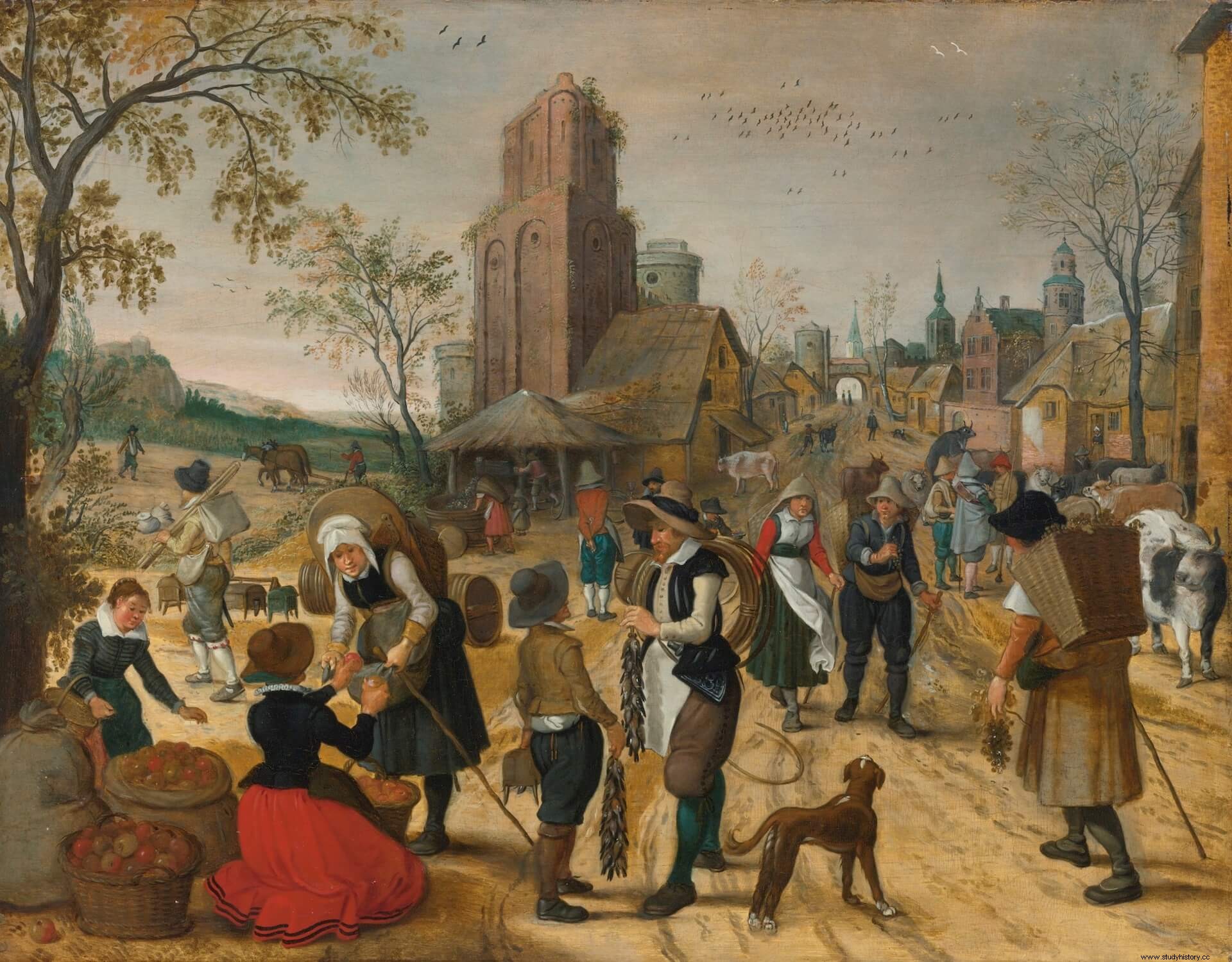
A local historian, Philip Hoogmartens, maintains that there is no It is the first time that the document comes to light:"In 1787 the municipality used it before Juan Enrique, Count of Frankenberg and Cardinal Archbishop of Mechelen, to exempt the town from taxes, but without success." This historian emphasizes the probable recurrent use of the document from an early date until the German invasion of 1914, during which a platoon of drunken Bavarian soldiers set fire to the municipal archive and most of the town hall minutes were lost.
A brand new history of services to Spain
Steuckers, who has also carried out an investigation, cites a long list of services that Osterloo rendered to the Hispanic Monarchy to justify the town's request to become part of the Kingdom of Spain:in 1594 the inhabitants took prisoner two mutinous soldiers in neighboring Weert and cut off their ears, which they promptly sent to the interim governor of the Netherlands, Count Pedro Ernesto de Mansfield; in 1623 a local craftsman, Mechtild Stouten, made thirty-two pewter spoons for the Army of Flanders. The services go beyond the War of the Spanish Succession, since it is known that, in April 1727, a resident of Osterloo, Pieter Nuyts, was imprisoned in Ostend for a brawl when he was about to embark for Spain to enlist in the Walloon Guard . Although Nuyts never came aboard, the minutes of the local court mention his constant allusions to the honor of the King of Spain.
The most lustrous services, Steuckers leaves them for last. The reason that the town was exempted from paying taxes by Felipe II in 1587 was the victory of the inhabitants over the troops of the Duke of Alençon in 1583. In this skirmish, which is mentioned in the chronicles of the time, a pastry chef named Walterus Born; Captain Alonso Vázquez would write down in his story:
The sacrifice was greater as the bourgeois used sacks of hops to make barricades in the streets, which greatly reduced their supply of beer for the following year's carnival, which was celebrated with insipid bran beer, according to Vázquez, “the cheapest and without any substance; call her in Flemish demuir , which means small beer, and the Walloons say it petitabiera ”.
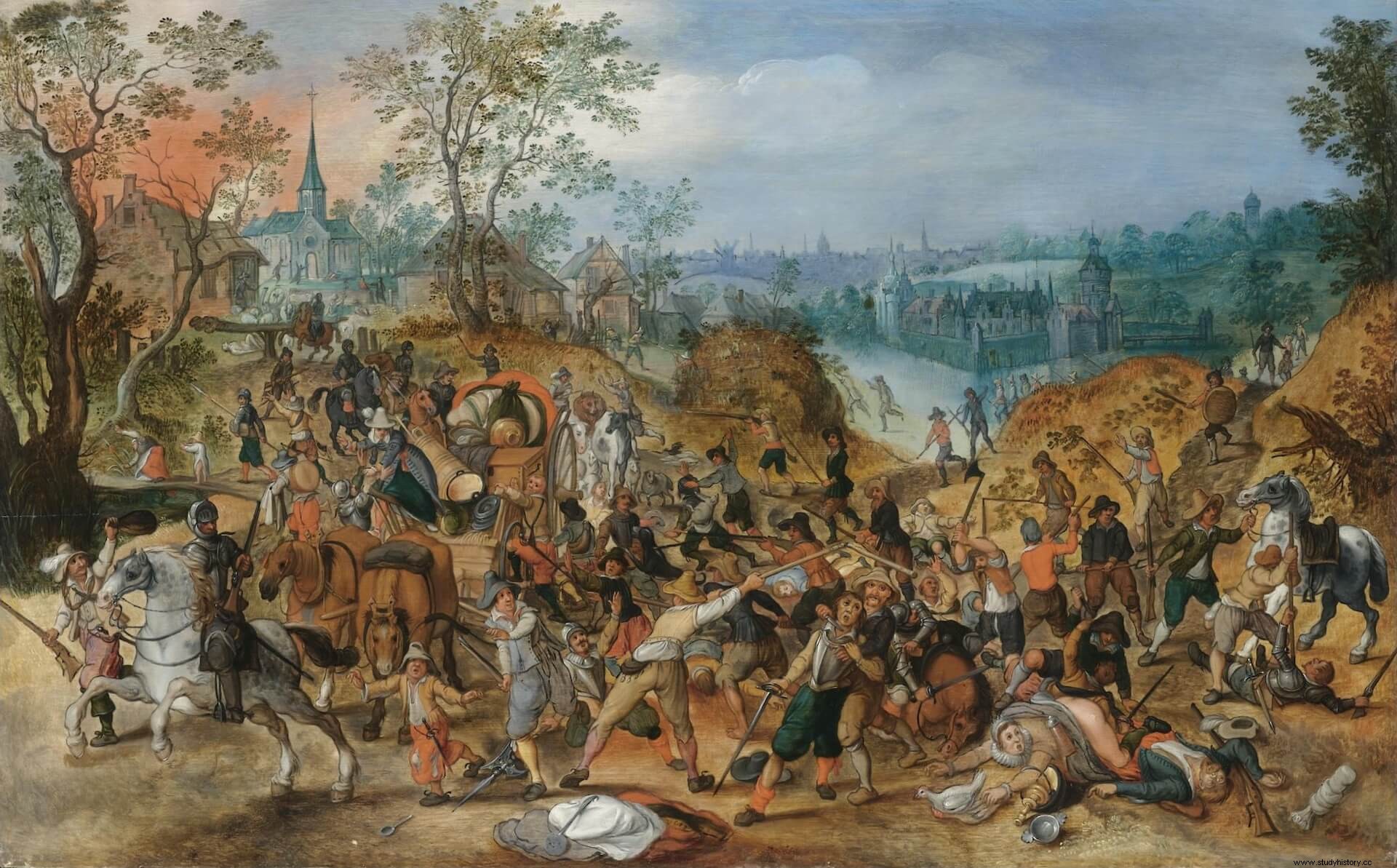
Another milestone occurred in 1626, when a merchant of cloth from Osterloo, named Hendrik Rynders, offered his resources and experience to Ambrosio Spínola, captain general of the Army of Flanders , to organize a canine logistics service for use by the many garrisons in the Netherlands. As in other regions of central and northern Europe, it was common in Flanders to transport certain goods – such as hides – by means of dogs. Alonso Vázquez mentions the use of:
Although the plan was never carried out, Rynders' document was translated into Spanish as Proposition for the use of dogs to transport supplies from the Army proposed to the Magd of the. by Henrique Rynders, a merchant from the village of Oesterlo in the county of Flanders , and is preserved in the General Archive of Simancas, a sign that the proposal reached the highest spheres.
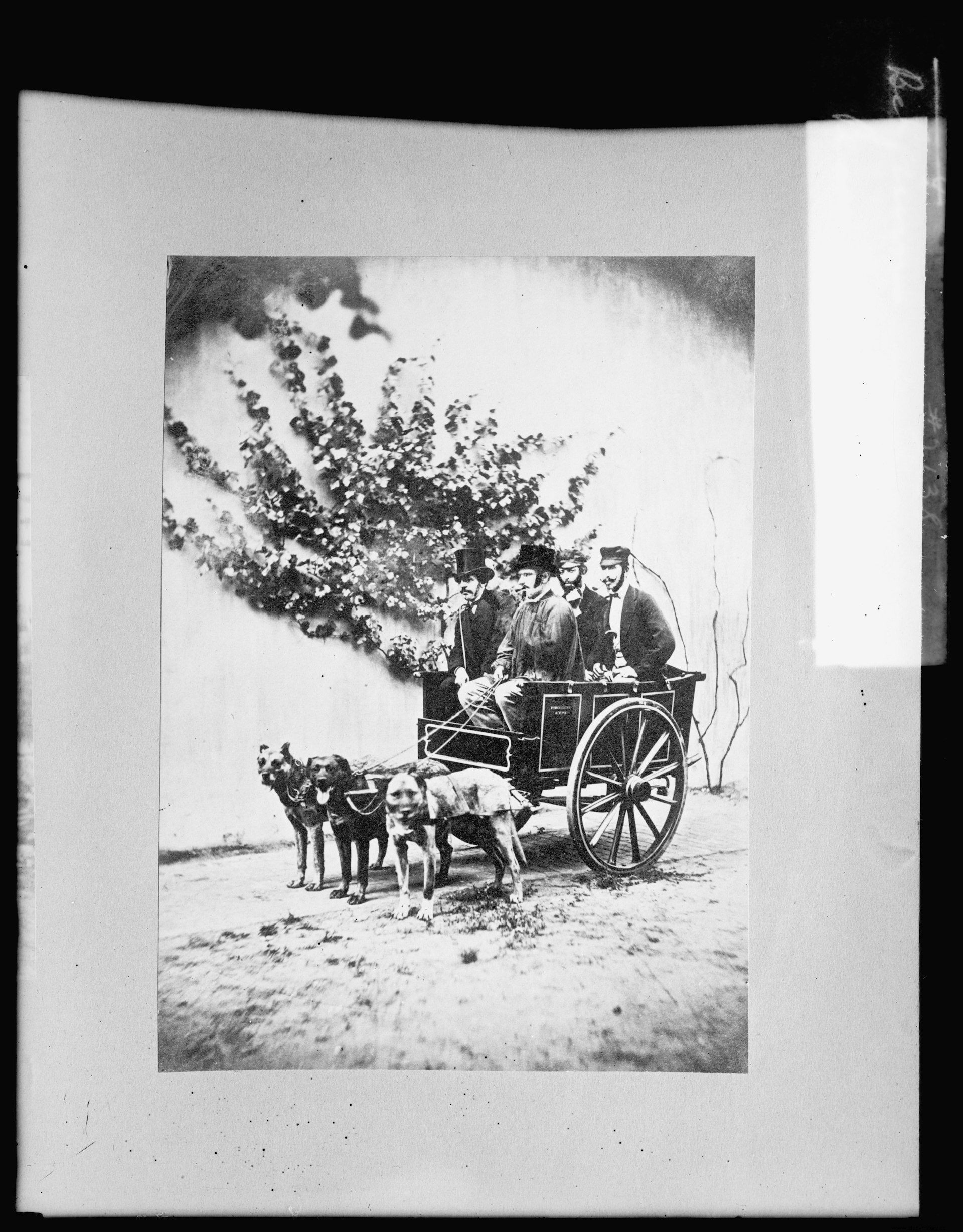
A fair aspiration with popular support
These and other stories put on the table the petition that the Osterloo City Council has sent to the Spanish embassy in Belgium with the hope that it will be accepted and can be integrated into the Kingdom of Spain with its privileges intact. "The logical thing would be for us to join the province of Cantabria for maritime trade," says Steuckers, who advances that his council is finalizing the draft of a proposal to create a maritime company that will take charge of trade between Osterloo and the Cantabrian ports via Antwerp.
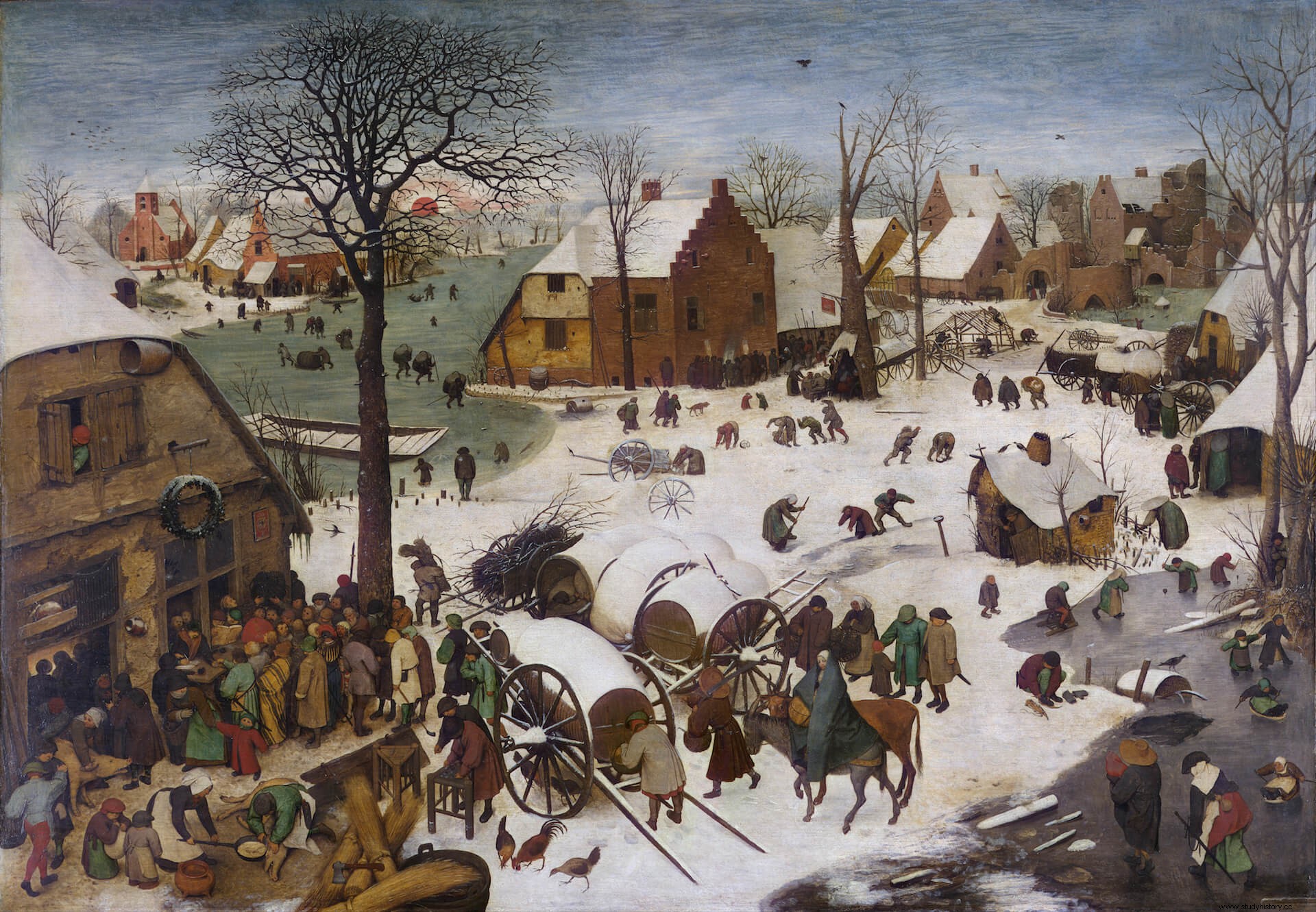
Neither the Spanish Ministry of Foreign Affairs nor the Belgian authorities have still ruled on the matter, although the proposal has attracted the attention of some local aristocrats, such as Godtgaf van Trouwenraede, who has made it public in the local press that his family has never stopped considering the King of Spain his natural lord. Is the restoration of Spanish authority in the Netherlands coming, perhaps?
Bibliography
Rahlenbeck, C. (1854):“Osterloo, une village singulier dans le Brabant flamand”, Messager des sciences et des arts, publ. by the Société royale des beaux-arts et des lettres, et par celle d’agriculture et de botanique de Gand , 12, p. 209-247.
Steuckers, D. (ed.) (2018):Den Schat der Priuilegen vande Stadt Oosterloo opgedraghen aen den Koningh . Mechelen:Uitgaven van de Abdij van Mechelen.
Van Tongeren, J. (2009):“From 's-Hertogenbosch to Osterloo:how beer fueled the Catholic resistance to the Dutch rebellion in the Flemish Brabant”, The Oxenfurt Historian , 87, p. 93-118.
April fool, yes. But...
The entry we published yesterday on our blog is, of course, a joke. It is based, however, on a truthful background. Many of the quotes included have been taken from the chronicle of Captain Alonso Vázquez , published in volumes 72, 73 and 74 of the Collection of Unpublished Documents for the History of Spain . Vázquez, who served several years in Flanders, included at the beginning of his work a prolix anthropological portrait of the flamencos that is priceless and makes all kinds of curious observations throughout the text. It is true, as stated in the text about the fictional town of Osterloo, that the Flemish and Dutch reinforced their artillery batteries with sacks of hops, and that they used dogs to transport goods. It is also true that a brave confectioner sowed chaos among the troops of the Duke of Alençon, but it was not in Osterloo, but in Antwerp, in 1583. And it is also true, of course, that some Flemish populations distinguished themselves by their fidelity to the Spanish crown, such as 's-Hertogenbosch, or Bolduque, whose inhabitants came to flagellate themselves in public processions to help save, through divine intervention, the thirds trapped on the island of Bomel in December 1585.
